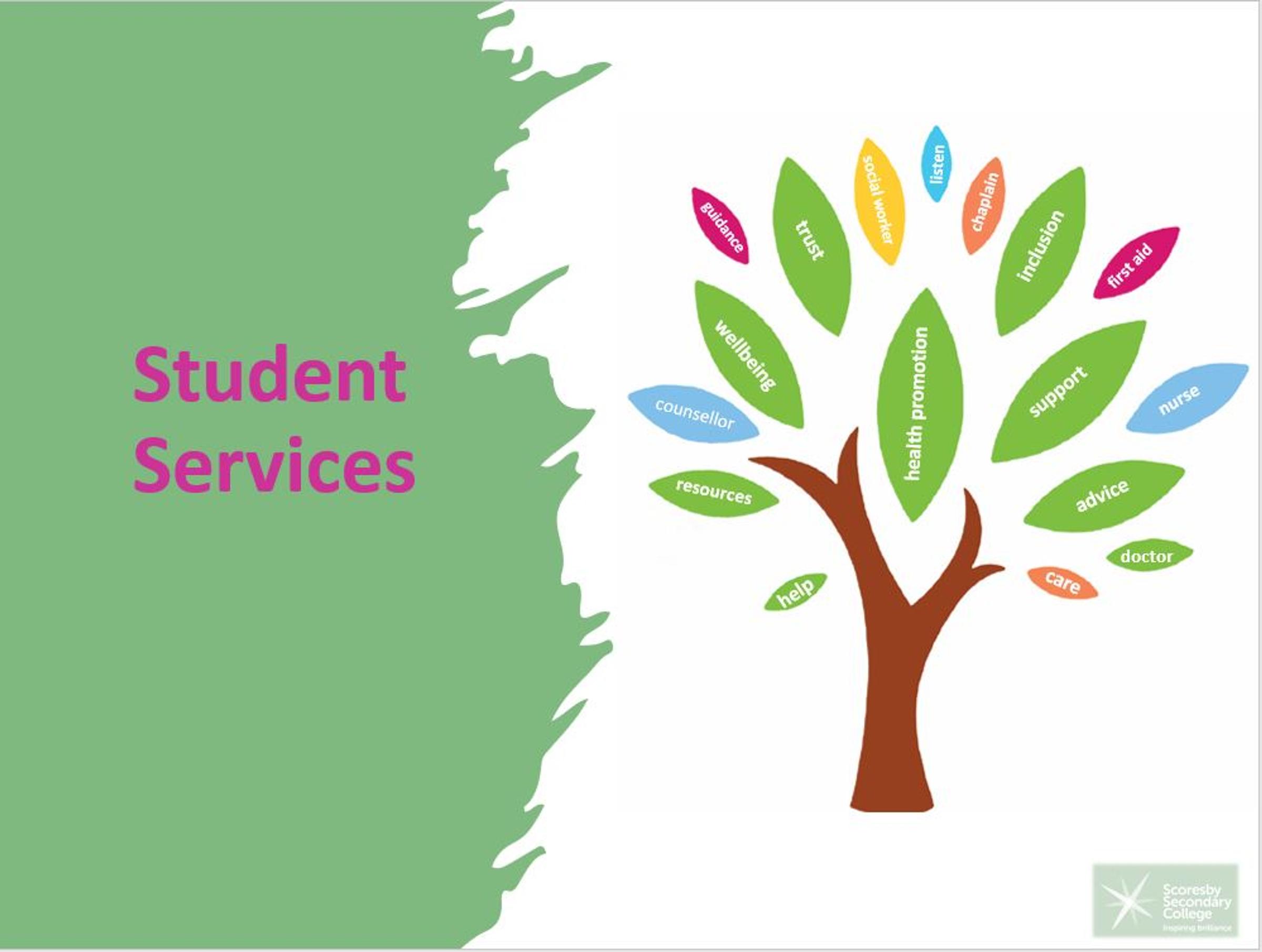Student Services

The Importance of Sleep
Sleep is a really important part of our life. It helps us to feel well, focused and happy. Most people experience a bad night’s sleep now and again, but if you regularly don’t get enough sleep it can really affect how you feel and what you can get done during the day.
Good sleep habits have been shown to improve mood, concentration and performance at school or work. They may also help control overeating and help prevent obesity.
Everyone is different, and the amount of sleep you need might be different to what your friends need. In general though people between 14 -17 need between 8 -10 hours sleep each night.
People aged 18 -25 need between 7- 9 hours sleep each night.
For young people, not getting enough sleep might be caused by:
- Biological factors such as puberty or changes in your body clock
- Environmental factors: such as social pressure, school or university workload, use of electronic devices, or using alcohol or other drugs.
Some tips for a good’s nights sleep are:
- Aim to get to bed and wake up around the same time each day. This helps your body to get into a routine.
- Turn off your screens (such as your phone, TV and laptop) at least 30 minutes before bedtime. The light from screens can stop your brain producing the sleep chemical melatonin, which is important in helping you get to sleep.
- Natural sleep cycles are based on your body clock, which is mainly set by when you’re exposed to light. In the evening, as you wind down for bed and sleep, your body needs less stimulation so you can try dimming the lights.
- Exercise during the day is a good way to make you tired at night.
- Your bedroom should be dark, cool (around 16-18 degrees and quiet.
- Try to limit caffeine you have including coffee, energy drinks and soft drinks. Try to avoid caffeine entirely after lunch time
- Avoid alcohol and smoking. You are less likely to get a good nights sleep with alcohol and nicotine in your system.
- If you are worried about any aspect of your sleep, or are experiencing any of the negative consequences of bad sleep, you could talk with a GP.
Source of information:
Headspace: National Youth Mental Health Foundation.
Zero-tolerance policy for bullying
At Scoresby Secondary College, we have a zero-tolerance policy for bullying. However, if you have experienced bullying, here is a guide on what it is, what you can do and what others can do to help.
What is bullying?
Bullying is when one or more people repeatedly and intentionally use words or actions against someone or a group of people to cause distress and risk to their wellbeing.
Types of bullying include:
- Verbal – When words are used to make you feel upset, angry, humiliated, etc. This can look like teasing, name calling or being yelled at.
- Physical – When someone, or a group harms your body, such as kicking, tripping, pinching or hitting. This can also look like a person damaging your property.
- Cyber – Receiving messages online that are designed to make you feel embarrassed, hurt, angry, etc. This can be on social media, via text messages, being sent images, or videos.
- Social – when someone or a group attempts to ruin your reputation, such as spreading rumours, playing pranks, ignoring/singling out the person who is speaking so they feel alone.
What do I do if I am being bullied?
You are not alone, you will not get in trouble, and we will work hard to support you and address the issue as soon as possible.
- Practise self-care, do something you enjoy as a mental break
- Remember your strengths and all the things that make you awesome, you can practise saying three positive things about yourself each night.
- Get support from your friends, family or support system. If you don’t have a support system, speak with a teacher about seeing wellbeing.
- Things will get better.
What can you do as a bystander?
If you see bullying occur, here is the STAT approach which helps you to remember what you can do:
STEAL THE SHOW: use humour, make a joke or divert the perpetrators focus onto something else, so the student that is being bullied is no longer in the spotlight.
TURN IT OVER: Ask someone, like a trusted adult – such as your teacher for help.
ACCOMPANY: Reach out to the person who was bullied and offer support
TEACH COMPASSION: Telling the perpetrator of bullying that their behaviour isn’t ok.
If you or someone you know is experiencing bullying, you must speak to someone such as an adult, parent, teacher or a wellbeing team member and let them know what is happening.
Extra resources:
Headspace: https://headspace.org.au/
Kidshelpline: https://kidshelpline.com.au/ - 1800 55 1800
Louise West, Tahlia Pastor & Alicia Alpium
Student Services Team



